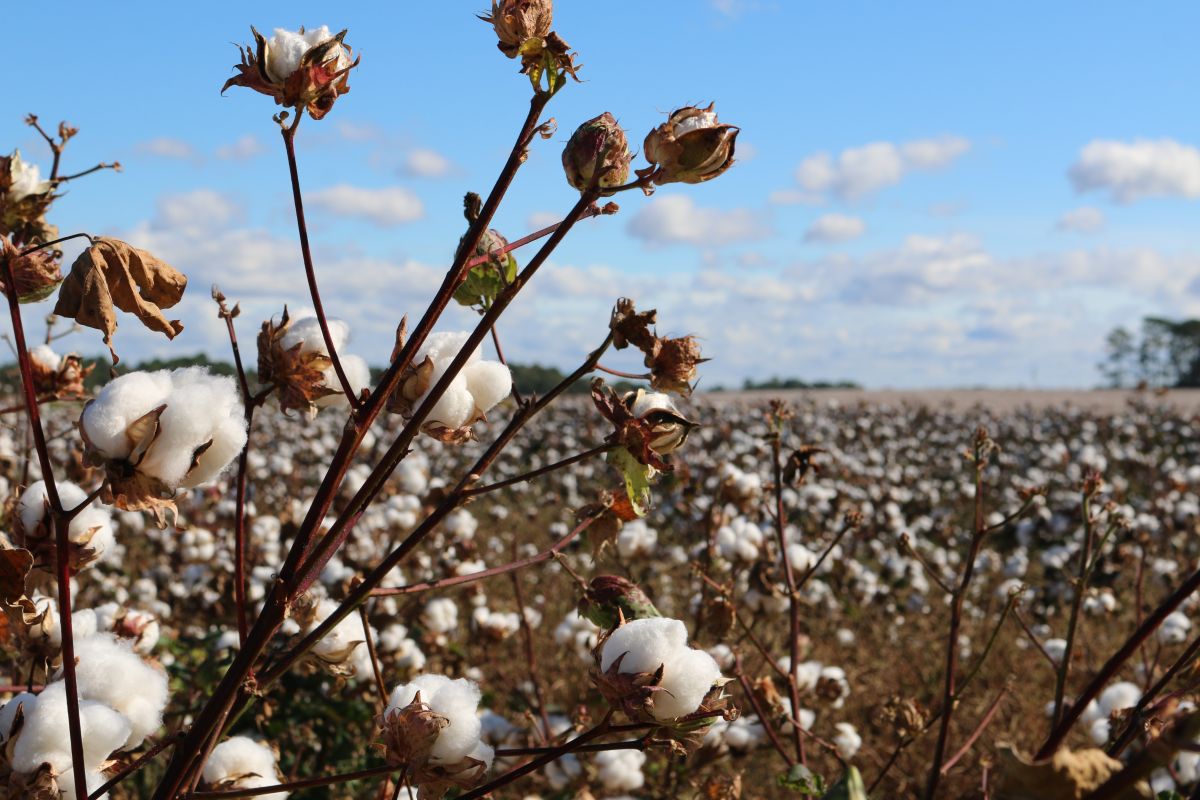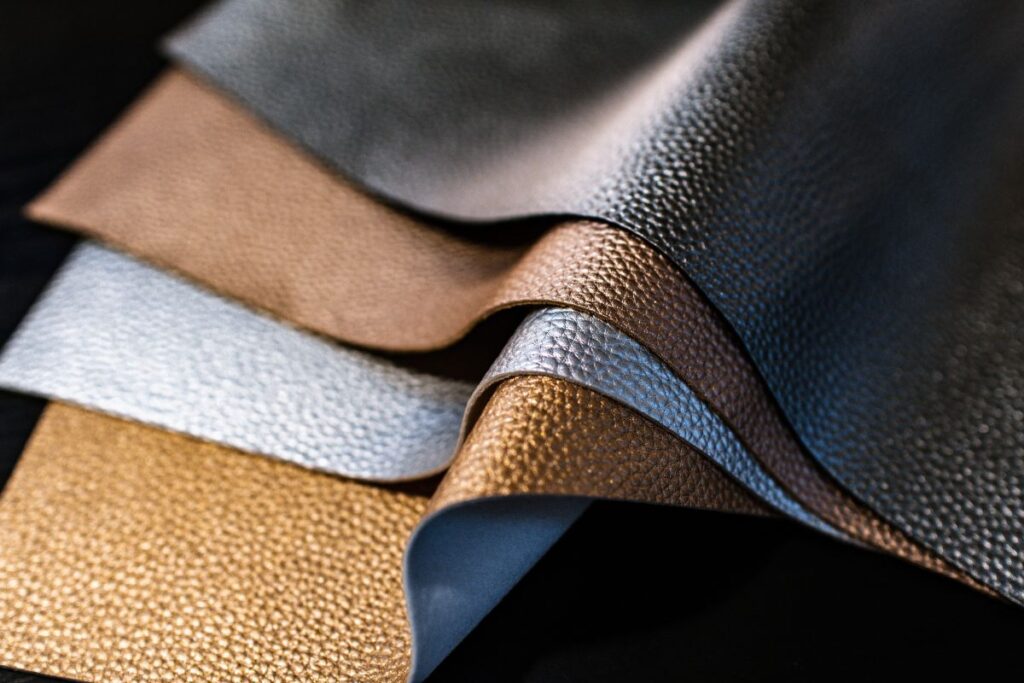Consider switching to organic cotton. The advantages and cons of using this cotton may be of interest to you. Natural cotton has many benefits but also some drawbacks. things to think about when choosing conscientious clothing decisions. This is why organic cotton is preferable. and for other organic fibres including bamboo, linen, hemp, and lyocell.
Clothing should not be required to disclose their sustainability practises. Our entire consumption pattern needs to be environmentally friendly. We at Panaprium strive towards this perfect world every day. Putting environmental concerns first without compromising on affordability or chicness. Organic clothing is a good place to begin if you're trying to reduce your impact on the environment through your wardrobe choices.
What Is Organic Cotton?
What we mean when we talk about "organic cotton" is cotton that has been grown without the application of any modern agricultural agents like fertilisers, pesticides, or even transgenic technology. In an effort to establish ecologically sound and biodynamic farming, it was initially planted in the 1980s. Because of its positive effects on biodiversity and ecological cycles, organic cotton is good for both people and the planet. That's why, despite the fact that organic cotton fibre doesn't have quite the same qualities as conventional cotton fibre, global output of organic cotton is skyrocketing. The characteristics of organic cotton, conventional cotton, and cotton fibre and yarn have been studied. The fibre's characteristics are compared in Table 2.9.
The Pros Of Organic Cotton
What exactly is organic cotton, to begin with? Natural insecticides and chemical fertilisers aren't used in the production of organic cotton. Furthermore, GMOs are prohibited in organic cotton production. Insects, fungus, and weeds are kept at bay with the use of natural pesticides and insecticides. When farming organic cotton, farmers only utilise methods that don't harm the environment. The crop is protected from any artificial harm and allowed to develop in a natural environment. What a fantastic idea, and a much more responsible approach than the prevalent "let everything trash the planet while we get rich" mentality. The benefits to the environment and your delicate skin are enormous.
Less Chemicals
There are several advantages to using organic cotton, but one of the most obvious is that fewer harmful chemicals will be released into the environment. Large quantities of pesticides and chemicals are used worldwide in the cotton industry. Insecticides and pesticides account for almost 10% of all construction materials used worldwide. And we're talking about some seriously toxic compounds here. They have a major impact on biodiversity loss and environmental destruction. As an added bonus, they pose a threat to our physical wellbeing. The World Health Organization has classified some of the chemicals in these pesticides as "probably" carcinogenic, "probably" carcinogenic, or "known" carcinogenic. You, your loved ones, your acquaintances, and everybody who wears garments are all affected by them, not just the cotton workers you scarcely care about. Those unfortunate enough to live in close proximity to typical cotton farms run the risk of having their drinking water tainted and may also have respiratory difficulties.
More Sustainable Production

Organic cotton's life cycle was analysed in comparison to conventional cotton by the Textile Exchange. The entire process of growing organic cotton, from sowing seeds to baling it, was found to have a much smaller environmental impact than conventional cotton farming. The environmental impact of cotton is diminished when it is grown in an organic manner. Growing organic cotton does less damage to ecosystems and aquatic life than conventional cotton. In addition, it has a smaller impact on acidification and global climate change. Organic cotton is great because... We would have a considerably simpler time choosing between the two kinds of cotton if the sole issue was whether or not they contributed less to or more to global warming. Unfortunately, there is no simple answer to this conundrum. I will discuss some possible additional elements in the "cons" section that may make cotton less sustainable.
Dyeing
The research by the Textile Exchange only examined the cultivation of organic and non - organic cotton; it did not investigate the processing of raw cotton or the manufacturing of the textile. Dyeing, however, employs the greatest and harshest chemicals, so it's necessary to investigate that as well. The process of dyeing cotton with poisonous chemicals is not only hazardous to the employees involved, but it also creates massive amounts of wastewater that can destroy aquatic life. Again, organic dying is better for the environment than its non-organic counterpart. However, we must be cautious, since not all organic cotton clothing is coloured with natural dyes.
Brands that claim to sell organic cotton may simply be referring to the cultivation process, while the manufacturing and finishing stages may not follow any organic guidelines at all. As a result, you should only purchase GOTS-certified organic cotton, as this ensures that the entire production process, from seed to completed product, was conducted in an organic manner.
Better For Your Skin
Not all the harmful chemicals used in the production process, such as the dyes, herbicides, insecticides, and fertilisers, are washed away before the clothing hit the racks. The dirtier they get, the worse it is. And if you don't wash your skin after the first time you wear them, you can absorb some of this substance. Thus, organic cotton, which employs less chemicals, is preferable for skin and health. In reality, organic cotton is one of the safest textiles and is highly recommended for use against the skin.
Allergy sufferers and those with sensitive skin can wear it without fear, and it's also hypoallergenic.
Babies, who have such delicate skin, benefit greatly from clothing made from organic cotton. This is a big reason why people who are committed to organic food have also embraced the organic clothes movement. If you don't want to put harmful chemicals into your body through your largest organ, you probably shouldn't put them on your skin either.
FAQs About Cotton
Look at the label before buying anything. It will give you an indication of whether it is environmentally friendly or not.
Organic cotton is more sustainable and clearly the better option. But this is only the start. In addition to making fabric production more environmentally friendly, companies must strive to do more in order to make the fashion industry more sustainable.
Cotton is renowned for being one of the dirtiest industries in the world. And it’s true. It causes extreme harm to the environment, to the workers, and the consumers. Some of the negative impacts of cotton include:
- Overuse of water
- Pesticides and other synthetic chemicals
- It is genetically modified (GMO)
- Puts farmers’ health at risk
- Toxic to workers, environment, and consumers
Despite knowing the harmful effects of conventional cotton, the majority of the fashion industry still chooses it over organic cotton. It’s all about making and saving money. Doing all of the above, ensure the highest yield possible and the most profit. But we must stop putting profits over the planet. From now on, fashion brands should focus on making cotton in an organic and sustainable way.
Sustainable fashion is buzzing. Everyone is talking about it. And when you hear sustainable fashion, you also hear organic cotton. As a rule, organic materials, including organic cotton are more sustainable and better for the environment. But that doesn’t make them perfect. Nothing is.
To make your shopping more eco-friendly, you must become aware of the impact of different fabrics. There are still many people out there who still don’t know much about cotton even though it makes a large portion of their wardrobe
More Durable
Moreover, preliminary evidence suggests that organic cotton is more long-lasting than conventional cotton. Chemicals may weaken the cotton fibres, leading to a lower quality textile. When compared to conventional cotton, the fibres of organic cotton are longer and more tightly interwoven. Due to this, garments made from organic cotton are of higher quality and last longer.
Comfier
Organic cotton clothing has a more luxurious feel because of the longer filaments. It would seem that they are more supple and accommodating. But we really don't know if that's true or not. Maybe it's just a placebo effect. When you buy an organic T-shirt, you spend more money than you would on a standard one, so it seems sense that you would want to feel comfortable in it.
The Cons Of Organic Cotton
Up to this point, organic cotton has sounded fantastic, and you're wondering why on earth anyone would ever go back to conventional cotton. Aside from being safer for humans and animals, it also benefits the skin and appears to be more eco-friendly. However, as I have stated before and will repeat again, longevity is not necessarily a binary issue. We should already know that organic cotton isn't the answer to all of our problems. You need to grasp the pros and cons of organic cotton before making a final choice.
There's logic to the application of insecticides, pesticides, and fertilisers. They serve to fortify and safeguard the plant. More pests are eliminated, and the plant is better protected, because pesticides and pesticides are more lethal. For decades, experts have been developing and refining cotton fertilisers to provide the plant with the precise balance of nutrients it requires. Therefore, ordinary cotton is the superior option.
Smaller Yield – Requires More Land
When it comes to production, conventional cotton is superior. Non-organic cotton can yield more than organic cotton when grown on the same plot of land. This is due to the increased efficiency of insecticides and the fact that cotton grown in non-organic soils is genetically modified to increase yield.
WWF reports that 2.4% of farmland is already used to growing cotton in the world's top cotton-producing countriess. Choosing an inefficient technology like organic cotton will necessitate 25 percent more land. We simply don't have the room for that. Therefore, the environmental cost of degradation caused by conventional cotton production should be factored into any comparison of the long-term viability of organic cotton and conventional cotton. And we believed organic cotton growing would help reduce things like global warming and biodiversity loss and acidification, but now we know better. When we take the larger picture into consideration, it's hard to say which one is better long-term viable.
Requires More Water
Having less productive organic cotton crops would mean using the same amount of water on fewer plants without increasing our yield. Water is needed by organic cotton more than by conventional cotton. Cotton requires a lot of water to grow successfully. That is definitely cotton's major flaw. About 20,000 gallons of water are required to produce only 1 kilogramme of cotton. For a sense of scale, consider that quantity of water would fill an average-sized swimming pool. And what can you do with with 1 kg of cotton? Simply a T-shirt and a pair of pants. Even if we limit ourselves to ordinary cotton, the situation is dire. One swimming pool of water is used to produce one organic cotton garment.
Natural Pesticides Can Be Harmful Too

Growers of organic cotton only employ non-toxic substances like soaps, oils, and minerals to combat pests and insects and nourish their crops. Despite their natural origins, they may also cause harm. It's possible that some of them are even more poisonous than their synthetic counterparts. Natural (originating in the natural world) does not automatically equate to harmless. Consider the case of manure. For thousands of years, people have relied on this organic fertiliser. To be sure, it's still animal excrement. The health of the workers may be put at risk.
Greenwashing
There's also the issue of "greenwashing," which is a whole issue unto itself. There is a lot of excitement about organic cotton, and many clothing companies—especially fast fashion companies—are trying to corner the market on organic clothes. This is not an issue; in fact, it may even be beneficial. The difficulty arises when non-organic, non-sustainable products are marketed as such. And if you're a regular at fast fashion stores, you might feel better about oneself when you see the "organic" symbol on the label, even if you have no idea what it means.
They may be trying to deceive you into making a purchase; this isn't your fault, but it's important to be aware of the possibility. Since they value you as a good person who strives to improve the world, and they think it's fantastic that you're interested in purchasing organic clothing. However, the main issue is that it's not clear from where exactly that thing is originating. The more suppliers they have to manage, the more complicated things get for the company.
What happens, then, if you purchase a T-shirt made from organic cotton but it lacks a certification label like GOTS? Even if the cotton was grown organically, it could have been coloured with incredibly hazardous chemicals, and this would cause it to be harmful to your skin even if you wore it.
Genetically Modified Cotton
Cotton grown using organic methods is not genetically modified nor treated with synthetic fertilisers or pesticides. The reduced use of hazardous chemicals in organic cotton production is the source of all its benefits. But its lack of genetic modification accounts for all of its drawbacks.
It's not as bad as you would imagine to genetically change your crops. As before, this is something that humans have done for centuries. The appearance of a watermelon or banana has changed little from its earliest days to the present. We've adapted plants to suit our preferences by preserving the qualities we enjoy and reducing the ones we don't. The procedure was just much slower and less exact. The stigma attached to the term "GMO" has made it sound like some evil mastermind is aiming to drain the sweetness from strawberries. But if you refer to it as "biotechnology," it sounds far more cutting edge and modern.
Cotton crops could be made more efficient through the application of genetic modification so that more cotton could be produced using the same amount of land and significantly less water. More so, we might be able to reduce the quantity of fertilisers and pesticides we use. We shouldn't write off GM completely just because we had some problems with it in the past.
Conclusion
Cotton farmed without the use of synthetic fertilisers, pesticides, or transgenic techniques is known as "organic cotton." It is excellent for both humans and the world, and it was planted in the 1980s as part of an effort to promote environmentally sound and biodynamic farming. Environmentally friendly and gentle on sensitive skin, organic cotton has been examined for its unique qualities as well as those of conventional cotton, cotton fibre, and cotton yarn. Organic cotton is better for the environment since it is produced with less toxic chemicals, and it is also more environmentally friendly because it is grown in a more sustainable manner. It has less of an effect on ecosystems and aquatic life, less of an acidification effect, and less of a global warming effect than conventional cotton.
On the other hand, processes like dying have the potential to reduce cotton's sustainability. Research conducted by the Textile Exchange looked at both organic and conventional cotton farming practises, but not at the subsequent stages of cotton processing or textile production. Although clothing made from organic cotton is better for the environment than that made from conventional cotton, not all organic cotton apparel is dyed with eco-friendly materials. It is more long-lasting, less likely to cause allergic reactions, and more safer for the skin and general health. Only organic cotton that has been certified by the Global Organic Textile Standard (GOTS) should be purchased by consumers, as this guarantees that all stages of manufacturing, from seed to finished product, were carried out in an organic way.
Although garments made from organic cotton have a plush texture and are good for the skin, they are not the panacea some have claimed them to be. The environmental cost of degradation caused by conventional cotton production should be considered into any comparison between the long-term viability of organic cotton and conventional cotton, as well as the additional land and water needed to grow organic cotton. Growing organic cotton successfully uses a lot of water; in fact, it takes 20,000 gallons of water to cultivate only 1 kilogramme of cotton. Natural pesticides can be dangerous, and greenwashing occurs when conventional items are falsely labelled as organic when they aren't. Realize that you can fall victim to trickery when making a transaction.
Organic cotton is not genetically engineered and is not treated with synthetic fertilisers or pesticides, but this also means that it has none of the benefits of genetically modified cotton. Changing the genetic makeup of crops isn't quite as awful as it sounds, especially considering how long humans have been altering plants to suit their needs. Cotton crops could benefit from genetic modification to increase productivity while decreasing inputs of fertilisers and pesticides.
Content Summary
- Switching to organic cotton may be something to think about.
- Organic cotton benefits both humans and the environment because of the positive impact it has on biodiversity and ecological cycles.
- The use of organic cotton has a number of benefits, one of the most prominent being the reduced emission of toxic chemicals into the atmosphere.
- From planting seeds to harvesting in a baler, growing organic cotton has a far lighter footprint than traditional cotton farming.
- When cotton is grown organically, its negative effects on the environment are reduced.
- Ecosystems and aquatic life are less likely to be harmed by organic cotton cultivation than by conventional cotton cultivation.
- Not only that, but its effect on acidification and global warming is minimal.
- In the "cons" section, I'll talk about some potential additional factors that may make cotton less sustainable.
- Organic cotton is one of the safest textiles and is highly recommended for direct skin contact.
- Understand the benefits and drawbacks of organic cotton before making a final decision.
- Organic cotton crops with lower yields would use the same amount of water although producing fewer cotton bolls.
- So, what happens if you buy an organic cotton T-shirt but it doesn't have a certification label like GOTS?
- Chemical fertilisers and pesticides are not used in organic cotton, and neither are any genetic modifications.
- All of organic cotton's advantages stem from its production method, which drastically reduces the usage of harmful chemicals.
- Changing the genetic makeup of your crops isn't as horrible as you would think.
- By applying genetic engineering, cotton crops could be made more productive, allowing for increased cotton production on the same area of land while requiring much less water.




